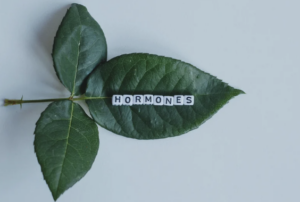Alcohol affects everybody differently, but it is solid fact that alcohol can work against you when you are trying to conceive. Strong scientific evidence shows that drinking alcohol can reduce both men’s and women’s fertility. Research has revealed even drinking slightly increases the time it to takes to get pregnant and reduces the chances of having a healthy baby.
Myth: Stopping drinking once you are already pregnant is the best way of ensuring a healthy pregnancy
ScreenMe Tip: Reducing or stopping drinking once you begin trying for a child can increase chances of success and give your unborn child the safest environment to grown in.
Alcohol in women’s fertility
Although we still don’t know how exactly alcohol affects fertility functions in women, we do know that it increases the time it takes to get pregnant and reduces chances of having a healthy baby.
Alcohol affects both conception and implantation and also increases the risk of early pregnancy loss. The reason for this may be that alcohol can cause changes in ovulation, cycle regulation and ovarian reserve. It can also prevent proper implantation in the uterous, resulting in an increased rate of early loss of the pregnancy and reabsorption, even before a woman realises she is pregnant.
Studies have also shown that women who drink seven or more drinks a week or more than three drinks on one occasion are more likely to have irregular periods and fertility complications.
But it’s not just women’s fertility that is affected by alcohol.
Alcohol in men’s fertility
In men regularly drinking alcohol may cause impotence and reduce sex drive. Research has shown that drinking can also affect fertility by altering sperm quality, count, size, shape and motility. This may be due to the fact that heavy drinking can lower testosterone levels, follicle stimulating hormone, luteinizing hormone, and raising estrogen levels which reduces sperm production.
Alcohol increases chance of miscarriage
Drinking more than six standard drinks on one occasion has been shown to cause miscarriage, stillbirth, premature birth, low birth weight and Foetal Alcohol Spectrum Disorder (FASD).
The damage to the unborn child can happen immediately after conception causing harm to a fertilised egg and even killing the just fertilised egg.
So how much alcohol is ok?
Well research varies when it comes to how much alcohol is too much when it comes to trying to conceive but knowing the effects of alcohol on fertility and that even drinking slightly increases the time it to takes to get pregnant it is advisable to avoid drinking alcohol in any quantity if you are trying to conceive. But when it comes to drinking while going through fertility treatment the thinking is unanimous- everyone agrees that it is best not to drink alcohol at all for best chance of success
Does alcohol affect IVF treatment?
One study showed that women going through IVF treatment who drank one or more drinks a day had more than twice the risk of miscarriage. This risk was higher if the drinking happened the week before IVF treatment. Similarly men who drank just one serving of alcohol a day from a week or a month before IVF treatment saw an increased risk of miscarriage by 38 times.
Based on the negative impacts of alcohol on conception and pregnancy the NHS strongly advices against drinking alcohol if you are pregnant or trying to get pregnant.
How can I increase my chances of getting pregnant?
Make the necessary changes in your lifestyle
Unless there are certain underlying causes preventing pregnancy you are more likely to become pregnant if both man and woman are in good health for fertility. Some factors that impacts fertility include:
- Tailor your diet to meet your nutritional needs
- Stop smoking
- Ideally abstain from drinking alcohol
- Get daily gentle exercise
It has also been shown that a healthy weight has a significant impact on chances of becoming pregnancy and staying pregnant. For women being underweight or overweight can cause irregular periods or even cause periods to stop completely while in men an unhealthy weight can cause hormonal imbalance and lower sperm count.
Take the right supplements
There is a large amount of evidence supporting the fact that diet plays an important role in supporting men’s and women’s fertility. Having said that in today’s society the majority of us do not get the nutrient levels we need from our food. Taking the right dietary supplement as well as having a healthy diet can help couples the best chance of a healthy conception.
Unfortunately many fertility supplements contain toxic compounds and high doses of strong antioxidants which can upset your metabolic balance which may damage quality of eggs and sperm. The goal is to help the body maintain its natural metabolic balance. Providing your body with support your body’s natural system help:
- Support energy production which is key for healthy egg and sperm development
- Protect DNA damage in egg and sperm
- Support epigenetics and gene expression through methylation of genes for optimal egg and sperm cells and development of the embryo.







